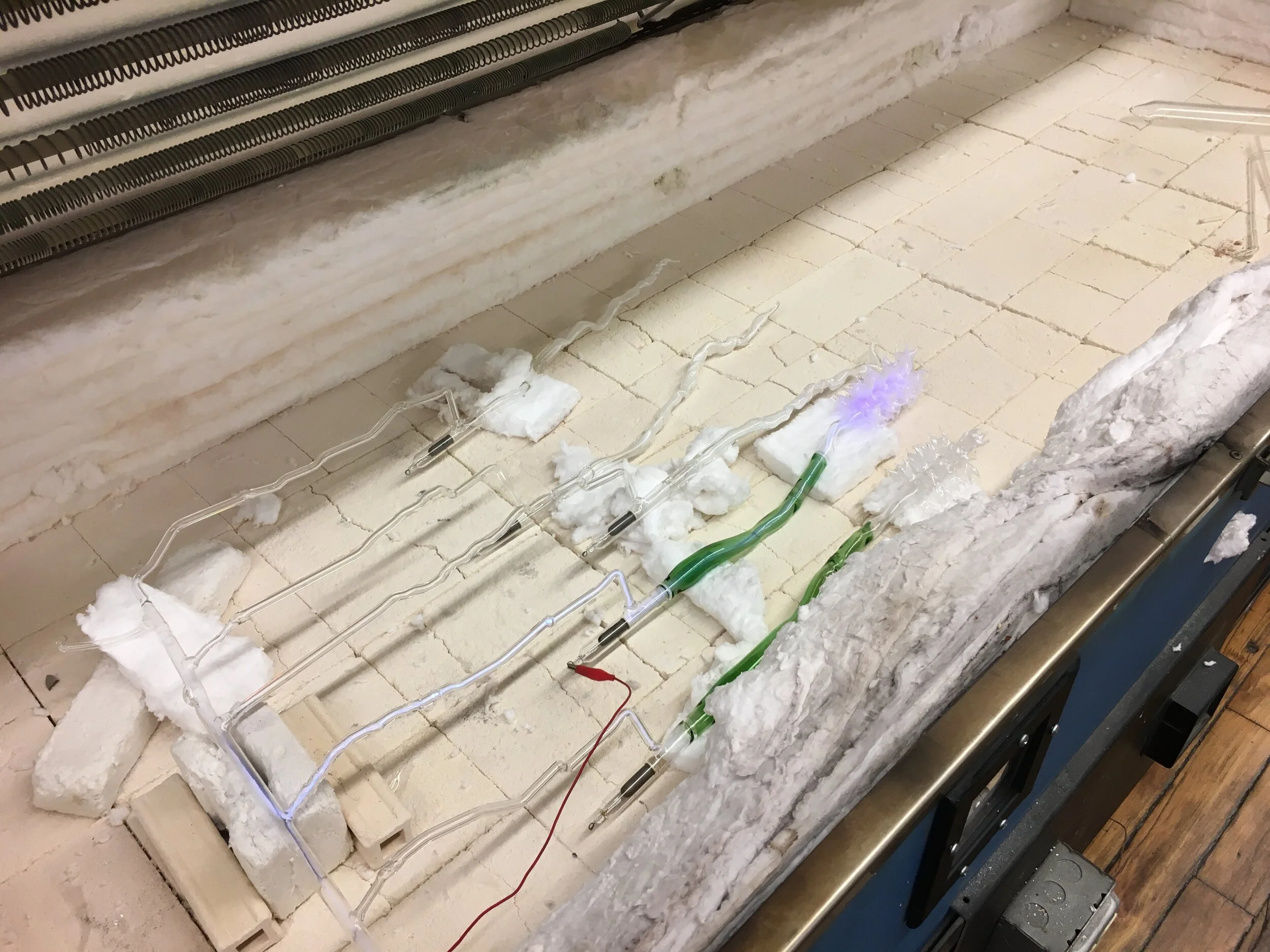Lighting Plasma Wildflowers
The final step in making my flameworked glass wildflowers: Light!
This is a process similar to creating neon lights, but more complex in many ways. Plasma sculptures are lit by being filled with different types of noble gases and electrified by a high- voltage, high-frequency power supply. The noble gases used can include neon, krypton, argon, xenon, and other mixtures. The gases each have their own characteristic color, which in turn can take on a variety of appearances if paired with different colored phosphor coatings, and other effects can depend on the pressure and many other factors. The wildflower sculptures contain krypton gas.
The sculptures are attached to a vacuum pump and air is evacuated before introducing the gas. (The lighting effects will not work unless an adequate vacuum is achieved first, which requires a completely airtight system, and other steps to ensure the purity of the fill.) During filling, the flowers and leaves were all attached to the same glass tubulation system so that they could be filled together. This extra glass tubing was later removed, sealing the gas inside the sculptures and keeping them separate so that they can be arranged in different ways. They can all be connected to the power supply, or, even if one is not connected by a wire, it will light just from moving it close to the electrical field of one that is already lit.
Lighting and Processing Plasma Wildflower (Part 3):
Lighted Plasma Wildflowers (Part 4)
*I did not plan to film Part 4 during a thunderstorm, but I left the sound in to enhance the mad science ambiance :) (Other than that, the other background noise is the power supply I was using to light the flowers that has a particularly loud cooling fan.) In this video you can see how it’s possible to light a wildflower leaf that is not physically connected to the power source by a wire, just by holding it nearby the flower that is connected. I am planning an alternative way to display these pieces but that will be for a future post.







